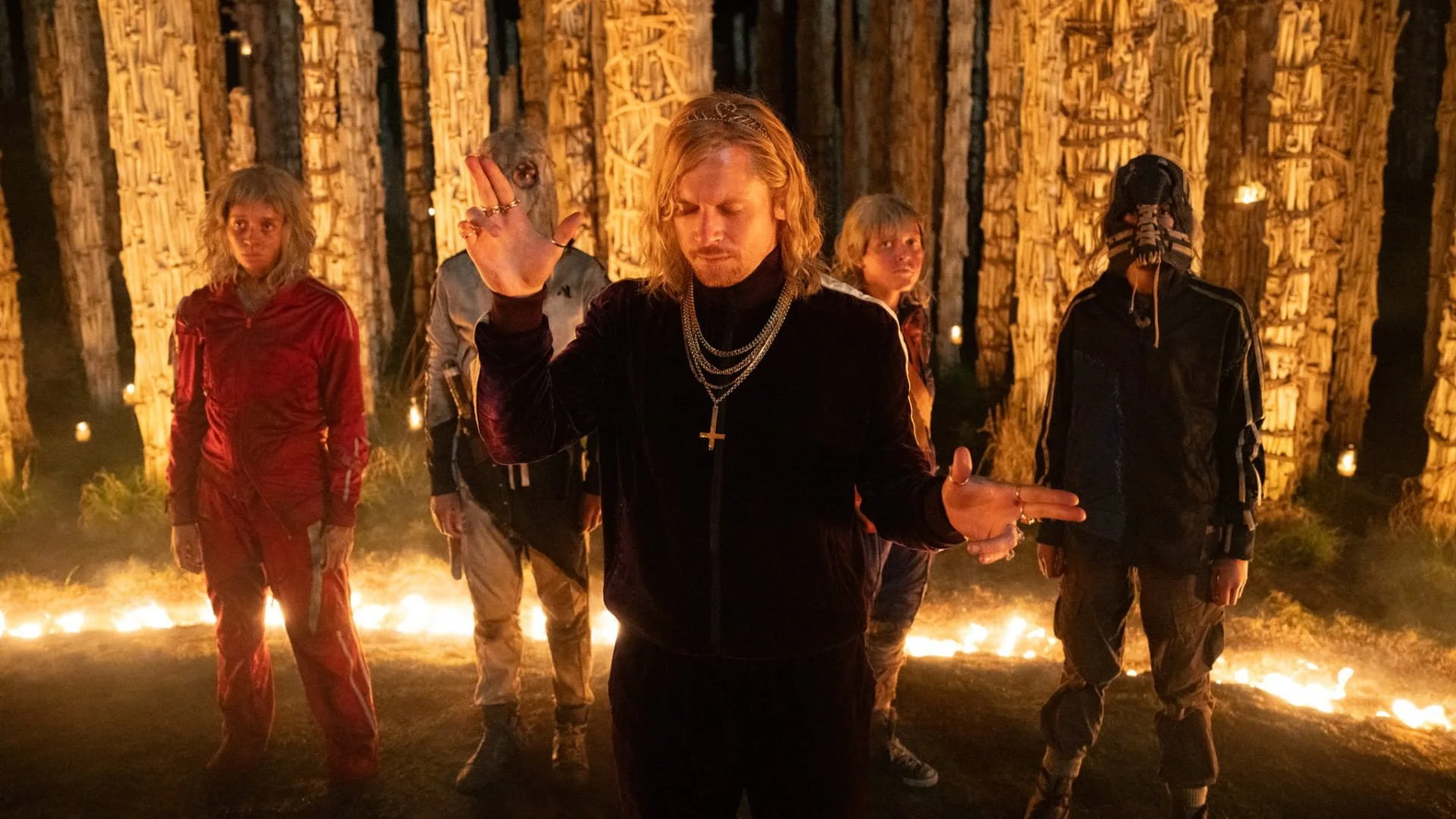Review: Small Axe: Mangrove (2020)
Mangrove, the first film in Small Axe, Steve McQueen’s BBC anthology project charting West Indian life in London in the 1960s through 1980s, is the sort of thoughtful, politically-charged courtroom drama that Aaron Sorkin’s The Trial of the Chicago 7 wants but fails to be. Culturally-specific, rooted in but not chained to the historical record, and persuasively shot and performed, the drama tells the story of the “Mangrove Nine,” a group of Black individuals from the Notting Hill community in the late 1960s who were arrested at a police protest and charged with inciting a riot.
Unlike Sorkin’s film about the better known Chicago 7, Mangrove doesn’t rush to the courtroom, but gives us around an hour to get to know the people whose lives orbit around the titular Mangrove Restaurant, a cosy, green-coloured spot offering soul food to the West Indian community of Notting Hill. This group notably includes the owner of the Mangrove, Frank Crichlow (Shaun Parkes), as well as activists Altheia Jones-LeCointe (Letitia Wright) and Darcus Howe (Malachi Kirby). We witness the domestic lives of these individuals in and around the Mangrove, whether they’re rallying for change or sharing a drink at a table. The camera highlights the specifics of time and place, which not only helps us understand the individuals at the centre of the trial, but also their communal food, music, and dress.
The specificity of the filmmaking is evident in how McQueen’s camera patiently shows the happenings of the restaurant—gliding over the stoves cooking goat curry or the tables of the customers where we can eavesdrop on chats and arguments. McQueen is never in a rush with the plot in these early moments, even as the repeated harassment from Police Constable Pulley (Sam Spruell), who is incensed by the West Indian community’s presence in London and breaks up the joint whenever he gets a chance, builds to the police protest, arrest, and trial.
After the protest, which McQueen portrays as a doomed march to Calvary, with the gradual appearance of policemen in identical suits increasingly crowding the frame and swallowing up the individuality of the protestors, the story jumps forward in time. We see the start of the trial and the narrative schematic of the film shifts from loosely-plotted community portrait to courtroom drama. Some of the individuals on trial, including Frank, fear for their freedom and mull pleading guilty to receive a lesser punishment, but Altheia and Darcus choose to represent themselves, allowing them to cross-examine witnesses and directly address the judge, Edward Clarke (Alex Jennings).
McQueen and his co-writer Alastair Siddons frame the self-representation of Altheia and Darcus as a grand metaphor for the growing agency of the West Indian community. They are not forced to stay quiet in court, but have the intelligence and legal ability to speak in their defense and eloquently outline the issues with P.C. Pulley individually and racism within the London Metropolitan Police systemically. By extension, the mostly-white jury (there are, notably, two Black jurors) acquires even more metaphorical heft than is usually due a jury; they stand in for British society within the courtroom and within the narrative itself, providing the audience the characters must persuade of the reality of their oppression at the hands of the police, and consequently awaken their civic duty to improve social institutions and community relations.
There are persuasive arguments and witty rejoinders during cross-examination—both hallmarks of the genre—but McQueen never stacks the deck or takes a celebratory lap. When the final verdict arrives, his camera dollies in on Frank Crichlow, who is unwittingly at the centre of the whole legal saga, a man who just wanted a place to sell spicy food to people in the community and who ends up a figurehead of Black liberation. We can hear the applause as the verdict is read, but McQueen doesn’t cut to a congratulatory wide shot of the people in the observation gallery, instead staying on Frank and pushing in closer on his face to watch the wave of anger and relief wash over him. Frank was never a radical, but by being pressured at every turn in his quest to run the Mangrove, he was radicalized.
Mangrove grounds such political awakening in the personal circumstances of the individuals, persuasively showing how the intersections of personal biases, structural failings, and social ignorance come to form systemic problems, as well as fuel activist social movements in response. McQueen’s greatest accomplishment with Mangrove is that he doesn’t assume sympathy for the characters or seek to placate the politics of the viewer. He earns the film’s dramatic achievement like a good barrister, persuading the viewer with the intimacy of his storytelling and the clarity of his presentation.
9 out of 10
Small Axe: Mangrove (2020, UK/USA)
Directed by Steve McQueen; written by Steve McQueen and Alastair Siddons; starring Letitia Wright, Shaun Parkes, Malachi Kirby, Rochenda Sandall, Nathaniel Martello-White, Darren Braithwaite, Richie Campbell, Duane Facey-Peason, Jumayn Hunter, Alex Jennings, Jack Lowden, Sam Spruell.



This mockumentary starring Matt Johnson and Jay McCarrol is a complex metafiction farce and a loving portrait of friendship and Toronto.